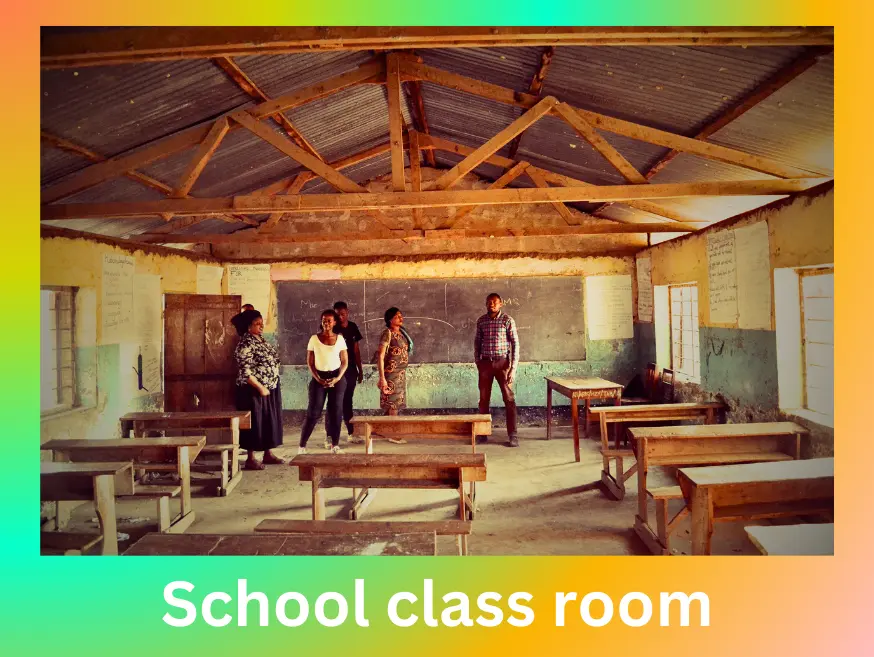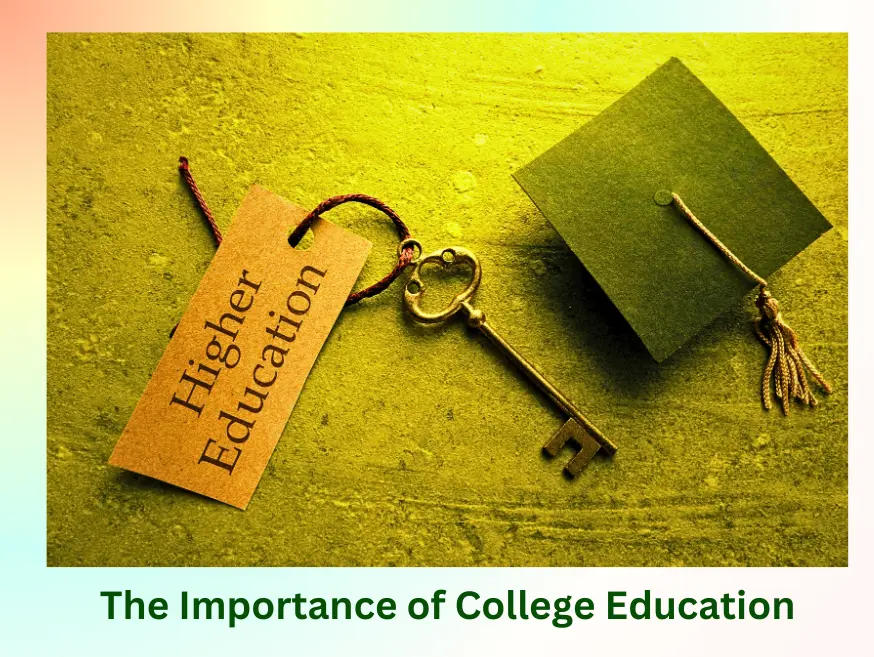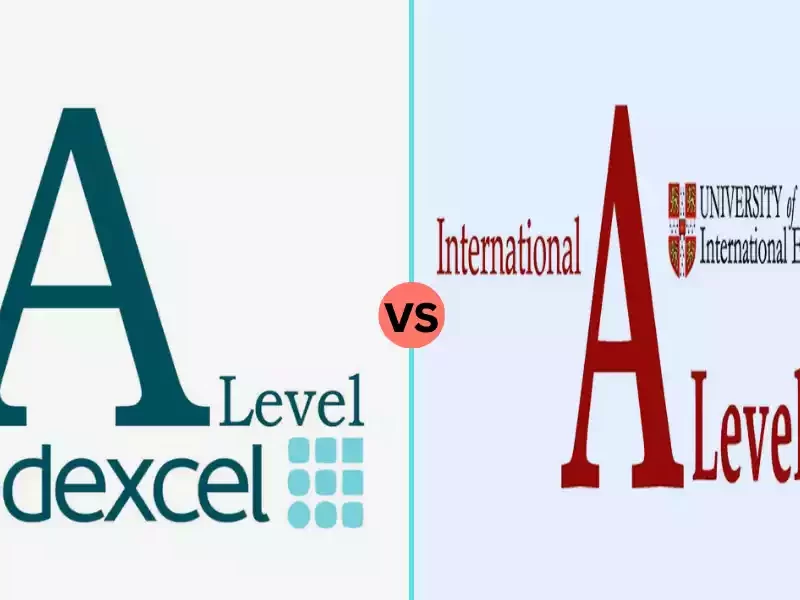College and School both provide essential knowledge and skills, but each offers something slightly different when it comes to the level of education, teaching methods, experience level, benefits offered to the student as well as the overall experience. In this article, we’ll look at these differences between school and college as well as their unique advantages and challenges to help better understand these educational institutions and the role they have played in our lives as students.
What is College?
College, or higher education, is an institution of learning offering advanced and specialized academic programs beyond the secondary school level. College students can pursue undergraduate and graduate degrees, diplomas, and certificates along with professional qualifications at these educational establishments.

College-bound students typically specialize and focus their studies in one field or discipline. Colleges provide academic programs across fields including arts, sciences, business engineering, and medicine to allow their students to choose courses tailored specifically to their career and personal interests.
Depth of study is one of the key characteristics of a college education. College courses allow students to develop an in-depth understanding and expertise within their chosen subject matter. Curricula often contain core classes, elective coursework, and major-specific specialized coursework – not to mention research projects, internships, and practical training opportunities that supplement your studies in college.
Colleges tend to offer greater intellectual engagement and academic rigor than schools, creating learning environments that foster critical thinking, independent study, and the cultivation of analytical abilities. At college level professors/instructors often serve as mentors/experts/facilitators in various disciplines and guide their students throughout their educational journeys.
Education can bring many advantages that go far beyond simply learning specialist knowledge. A college education offers intellectual exploration and personal growth opportunities. Transferable skills development such as communication and problem-solving also helps. Graduating from college may even increase earning potential and further your career goals!
Colleges can either operate independently of a larger university, or be part of it as constituent colleges. Universities typically include numerous colleges which together provide access to an extensive array of academic and research programs; within such institutions some individual college departments, faculty members and resources may still maintain an independent identity and offer differentiated academic offerings.
Higher education (college level) provides more challenging studies. College provides intellectual growth, career preparation and specialization studies so students can further their chosen field knowledge while developing key professional abilities that will serve them throughout their lives.
What is School?
Schools are educational establishments or institutions where children of a specific age or grade receive formal guidance and instruction from educators or teachers. Schools strive to create structured, organized learning environments in which pupils can gain the necessary knowledge, skills, values and attributes needed for both intellectual and social growth.

Curriculums are usually defined by educational boards or authorities and outline which subjects and topics will be taught in each grade. Common core subjects, including mathematics, science, language arts, social studies as well as additional subjects like art, physical education or foreign languages can all be included within a curriculum.
Schools have the responsibility of creating an environment conducive to effective teaching and learning. This may include providing classrooms, libraries, laboratories, resources for educational activities as well as creating an assessment and evaluation framework – this may include periodic tests, assignments or projects.
Schools promote an inclusive community alongside academics by encouraging social interactions, extracurriculars and personal growth opportunities for their students. Such schools play an essential role in shaping attitudes and values among pupils while encouraging positive behavior and reinforcing moral and ethical standards.
Schools may take various forms. Elementary or primary schools cater to younger students (usually between 5-12), junior high (11-14) or middle schools (15-18). Each educational system and country may use distinct terminology and structures.
Schools form the cornerstone of education systems around the world, providing a structured, comprehensive education to their pupils that prepares them academically as well as equipping them with necessary knowledge for personal and professional futures.
Differences Between College and School
The differences between college and school can be observed in various aspects, including the educational levels, institutional structure, focus of learning, student autonomy, admission and graduation requirements, campus life, cost and funding, and social and personal development.
Let’s explore these differences:
- Educational Levels:
- School: Schools typically provide education from preschool or kindergarten through primary and secondary levels.
- College: Colleges offer education beyond the secondary level, providing undergraduate and postgraduate programs.
- Institutional Structure:
- School: Schools are organized into grade levels, with a standardized curriculum for each grade. Students progress through the grades in a structured manner.
- College: Colleges often have an academic year or semester system, with students choosing their courses and majors. There is more flexibility in scheduling and course selection.
- Focus of Learning:
- School: Schools provide a broad-based education, covering various subjects and aiming to develop foundational knowledge across multiple disciplines.
- College: Colleges focus on specialized education, allowing students to delve deeper into their chosen majors or fields of study.
- Student Autonomy:
- School: Students in school follow a structured routine, with teachers closely monitoring their progress and providing guidance. Parental involvement is typically significant.
- College: College students have more freedom and independence. Professors act as facilitators and mentors, and students are responsible for their academic choices and progress.
- Admission and Graduation Requirements:
- School: School admission is usually based on age and local residency, with promotion determined by standardized tests and continuous assessments. Graduation requirements are set by education boards.
- College: College admission is based on academic qualifications and often requires entrance exams. Progression is based on credit systems and GPA. Graduation requirements vary based on the chosen major.
- Campus Life:
- School: School campuses are often smaller, and students are typically allocated to classes based on grade levels. Extracurricular activities may be limited.
- College: College campuses are larger and may offer various facilities such as libraries, sports facilities, and student centers. Students choose their own courses, and there are diverse extracurricular opportunities and clubs.
- Cost and Funding:
- School: Schools are generally funded by the government, and students may have minimal or no tuition fees. However, there can be costs associated with school supplies and uniforms.
- College: Colleges receive partial government funding but often require substantial tuition fees. Additional expenses may include textbooks, accommodation, and supplies. Scholarships and financial aid options are available.
- Social and Personal Development:
- School: Students in school interact mainly with peers within their grade level, with limited exposure to diverse perspectives. Character-building and discipline are emphasized.
- College: College students interact with peers from diverse backgrounds, exposing them to a range of ideas and cultures. Emphasis is placed on critical thinking and independent thought.
These differences highlight the transition from a structured, foundational education in school to a more specialized, autonomous learning experience in college. Both institutions play essential roles in a person’s educational journey, providing different opportunities for growth, development, and career preparation.
Similarities Between College and School
There are various differences between College and School life, yet also many similarities.
Here are a few key similarities:
- Educational Purpose: Both colleges and schools share the overarching goal of providing education to students. Goal of these courses: Provide essential knowledge, skills and values necessary for intellectual and social growth as well as individual personal advancement.
- Accreditation Standards and Quality Assurance: Schools and colleges alike must abide by quality assurance measures as part of accreditation processes, to meet accreditation standards. Accreditation ensures that institutions meet certain criteria and maintain educational standards to ensure the quality of education provided.
- Learning Environment: Both colleges and schools strive to create conducive learning environments for students. They provide classrooms, libraries, laboratories, and other resources necessary for educational activities. The institutions promote a positive and engaging atmosphere that fosters learning and growth.
- Teachers and Educators: Teachers and educators are employed by colleges and schools to instruct, instruct and mentor their students. Teachers play an invaluable role in helping their pupils learn, providing academic support and fostering intellectual growth.
- Curricular Components: While the focus and depth of the curriculum may differ, both colleges and schools have curricular components. Both institutions provide students with a well-rounded educational experience through courses like mathematics, science and language arts.
- Assessments and Evaluations: Both colleges and schools utilize assessments and evaluations to measure student progress and achievement. They employ various methods such as tests, assignments, projects, and examinations to evaluate students’ understanding and mastery of the material.
- Student Support Services: Colleges and schools provide many services for their students. These may include counseling, career guidance, academic advising services as well as assistance for special needs individuals in order to foster both their academic as well as personal growth.
- Community and social interaction: Colleges and schools both foster an atmosphere that is inviting to their student body, with both encouraging them to form strong connections among each other and interact freely among themselves. Students can take part in clubs, sports teams and social activities for a more comprehensive education experience.
While the specific implementation and focus may differ, these similarities highlight the fundamental aspects of education that exist in both colleges and schools.
The Importance of College Education

College education holds significant importance in today’s society due to the following reasons:
- Enhanced Career Opportunities: College education opens more career options than high-school diploma alone. Higher education equips graduates with more specialized knowledge required by many professions, making them more competitive on the job market and giving access to better paying positions.
- Higher Earning Potential: College graduates tend to outearn those without degrees over time; according to studies, graduates tend to outscore those without one in terms of financial security and success over their lives. A degree can serve as the cornerstone for future financial security and success.
- Personal Growth and Development: College education fosters personal development. Students gain intellectual freedom as well as transferable skills such as communication, problem solving, teamwork and time management which they’ll carry into both their personal and professional lives.
- Expanded Knowledge and Expertise: College education gives you access to additional knowledge and expertise across various subjects of study. Students have ample opportunities to explore academic pursuits that interest them while engaging in research into majors they wish to explore further. This deep understanding of a subject area can lead to innovative thinking, contribute to advancements in the field, and open doors to further academic pursuits.
- Networking and Connections: College provides a rich environment for networking and building connections with peers, faculty members, and professionals in various fields. These connections can be valuable for future job opportunities, mentorship, internships, and collaboration. College campuses often offer access to career fairs, industry events, and alumni networks that can further enhance professional prospects.
- Personal Fulfillment and Confidence: College education can be transformative. It increases confidence and fosters feelings of accomplishment while equipping individuals with knowledge, critical-thinking capabilities, and the skills required for effectively communicating ideas. Graduating from college can boost self-esteem and provide a sense of fulfillment, as individuals have overcome academic challenges and achieved a significant milestone.
- Social and Cultural Exposure: Campuses are welcoming environments, offering people from diverse backgrounds, cultures and perspectives the chance to interact. College education provides opportunities to interact with peers from different walks of life, fostering cultural appreciation, tolerance, and a global mindset. Diverse ideas and experiences can add tremendously to one’s life and broaden one’s understanding of the world around them.
- Lifelong Learning: College education cultivates a love for learning and instills a commitment to lifelong learning. Graduates are equipped with the skills and mindset to adapt to changing job markets and evolving industries. The ability to learn and adapt continuously is essential in a rapidly changing world, and a college education prepares individuals for lifelong personal and professional growth.
College education offers numerous benefits, including expanded career opportunities, higher earning potential, personal development, specialized knowledge, networking, personal fulfillment, social exposure, and a foundation for lifelong learning. The program equips individuals with the knowledge and abilities required to excel in their chosen field and make meaningful contributions to society.
The Significance of School Education
School education holds immense significance in society due to the following reasons:
- Foundational Knowledge and Skills: School education provides a fundamental knowledge base and essential skills necessary for personal, intellectual, and social development. The program equips students with essential subjects like mathematics, science and language arts while giving them an extensive background across multiple fields of knowledge.
- Literacy and Communication: Schools place great emphasis on developing literacy and communication skills for effective communication, critical thought analysis, understanding information in everyday situations and interpretation, among many other things. Reading, writing and speaking all play an integral part.
- Cognitive and Intellectual Development: School education fosters intellectual and cognitive growth by stimulating analytical thought processes like critical analysis and problem solving; encouraging creativity and curiosity as well as the ability to reason. Students develop deeper comprehension of concepts while applying it directly in practical situations.
- Socialization and Character: Schools play an essential role in helping children cultivate social skills and character, such as empathy and cooperation, by offering structured settings where students from diverse backgrounds interact in an inclusive setting and develop teamwork, respect, and cultural understanding. School education also emphasizes character development, moral values, and ethical behavior.
- Preparation for Higher Education: School education serves as a foundation for further academic pursuits, including college and university education. Prep4College prepares students for higher education by imparting essential study habits and academic abilities necessary to thrive in advanced learning environments.
- Equal Access to Education: School education fosters equal access, giving all children equal opportunity for growth and learning regardless of socioeconomic status or abilities. It helps bridge the gap between different segments of society and offers a pathway for social mobility and equal opportunities.
- Basic Life Skills: School education imparts practical life skills that are essential for everyday living. These include skills such as problem-solving and decision making as well as time management. Such skills empower students to navigate the challenges of adulthood and become responsible and independent individuals.
- Community Development: School is an integral institution within any community, serving to bring parents, students and other members together in one setting. Through school involvement efforts such as parent-teacher groups or events to foster civic responsibility.
- Health and Wellbeing: School education aims to promote physical education, healthy lifestyle choices and mental healthcare services, which all help contribute towards student wellbeing. Athletic facilities, healthy meal options and counseling sessions may all play a part in contributing to student wellbeing in school settings.
School education plays a pivotal role in providing children with knowledge, skills and values necessary for intellectual, social and personal growth. It serves as an entryway into higher education, prepares children for life after high school; promotes socialization and character formation while offering equal access to learning – ultimately contributing to individual and community wellbeing.
Challenges in College and School
Both Colleges and Schools face various challenges in providing quality education and ensuring a positive learning environment.
Here are some common challenges faced by both institutions:
Challenges in Schools:
- Funding: Schools often struggle with inadequate funding, which can impact resources, infrastructure, and the quality of education provided. Insufficient funds can limit the availability of modern teaching tools, materials, and extracurricular programs.
- Class Size and Teacher-to-Student Ratio: Large class sizes and high teacher-to-student ratios can hinder personalized attention and individualized instruction. It becomes challenging for teachers to address the unique needs and learning styles of each student effectively.
- Standardized Testing Pressure: Schools often face pressure to perform well on standardized tests, leading to a curriculum that focuses heavily on test preparation. This can limit the emphasis on critical thinking, creativity, and holistic development.
- Socioeconomic Disparities: Schools in economically disadvantaged areas may face additional challenges related to resource availability, infrastructure, and student support services. These disparities can impact the quality of education and create educational inequalities.
- Inclusion and Diversity: Schools strive to foster an equitable learning environment; however, schools may face difficulties accommodating students of diverse abilities, cultures, and learning styles. Equal access opportunities must be ensured so as to meet each child’s individual needs and meet them accordingly.
Challenges in Colleges:
- Rising Tuition Costs: Costly college educations place immense strain on families and students financially; as a result, financial difficulties may result in both individuals as well as their institutions. Access to affordable education and managing student loan debt are significant concerns.
- Access and Equity: While efforts are made to promote access and diversity in colleges, disparities still exist. Some students face barriers in accessing higher education due to financial constraints, limited educational resources, or social factors. Ensuring equal opportunities for all students remains a challenge.
- Academic Preparedness: Students entering college may face challenges related to academic preparedness. Differences in educational backgrounds and varying levels of readiness can impact student success and the need for additional support and remedial programs.
- Mental Health and Well-being: Stress, anxiety and mental health conditions are prevalent among college students, often as the result of trying to balance academic demands with social pressures and personal responsibilities. Students’ physical wellbeing may become compromised under such stress. Providing adequate mental health support services is essential but can be challenging due to resource constraints.
- Evolving Job Market Needs: Colleges need to keep up with the changing demands of the job market and industry trends. Curriculum development can be challenging when trying to address relevant, up-to-date needs and desires in line with emerging technologies and foster relevant, valued skills that align with workforce demands and needs.
Colleges and schools strive to meet these challenges head-on by offering students quality education. Collaboration among policymakers, educators, parents and communities is necessary in overcoming such hurdles.
Summary
Both college and school play integral roles in an individual’s educational journey. While schools provide a structured foundation and nurturing environment, colleges offer specialized education and personal growth opportunities. Decisions between school and college depend on an individual’s preferences, career goals and finances. Education can provide invaluable benefits that will pave the way to an enjoyable and prosperous future no matter which path one chooses.



